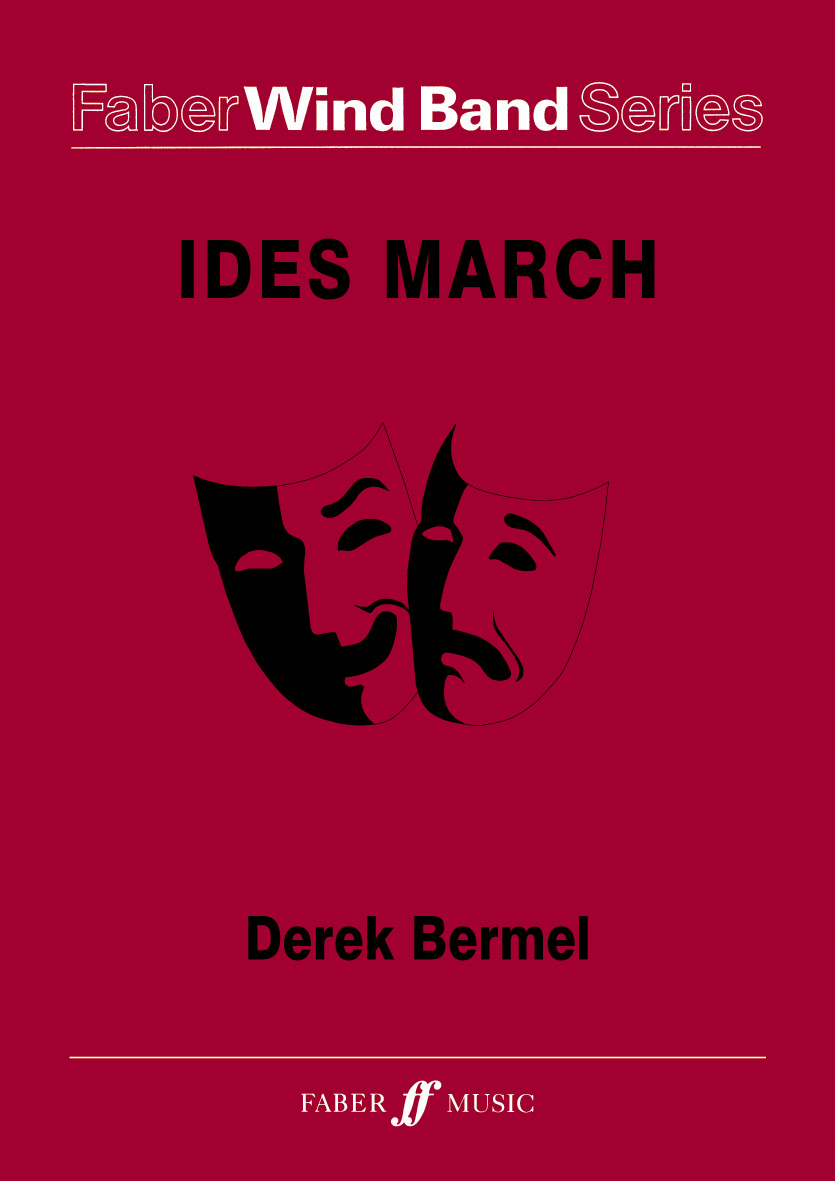Results
-
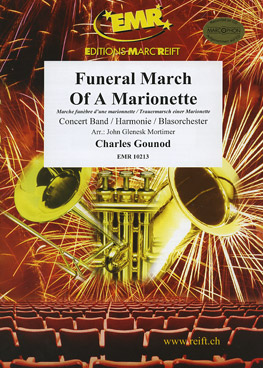 £124.10
£124.10FUNERAL MARCH OF A MARIONETTE (Intermediate Concert Band) - Gounod, Charles - Mortimer, John Glenesk
Duration: 3:45
Estimated dispatch 7-14 working days
-
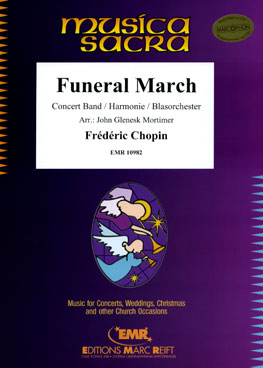 £100.00
£100.00FUNERAL MUSIC (Intermediate Concert Band) - Chopin, Frederic - Mortimer, John Glenesk
Duration: 6:00
Estimated dispatch 7-14 working days
-
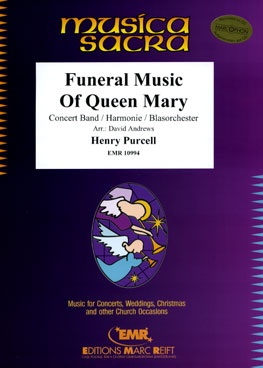 £124.10
£124.10FUNERAL MUSIC OF QUEEN MARY (Intermediate Concert Band) - Purcell, Henry - Andrews, David
Duration: 9:10
Estimated dispatch 7-14 working days
-
 £79.20
£79.20Siegfried's Funeral Music (Concert Band - Score and Parts)
Mr. Tyra proves that ``Molly Malone'' and ``The Wearing of the Green'' can still be delightfully fresh material for band. He provides a unique harmonic treatment with a colorful display of the band's best sonorities and it makes for excellent program material and fine fun.
Estimated dispatch 7-14 working days
-
 £80.00
£80.00Siegfrieds Funeral Music (Concert Band - Score and Parts) - Wagner, Richard - Whear, Paul W.
A classic Wagner selection in a enhanced arrangement. A perfect way to expose your students to the exceptional music of Wagner!
Estimated dispatch 7-14 working days
-
 £64.95
£64.95PURCELL VARIANTS (Advanced Concert Band) - Meechan, Peter
Purcell Variants is based on Purcell's Queen Mary's Funeral Music, which consists of four canzonas, two elegies and an anthem. The first movement begins by sounding some of Purcell's original music in the trombones and horns, underpinned by a timpani roll with the woodwind articulating the beginnings and endings of the phrases. This leads into a cadenza for trumpet and alto saxophone before the movement heads in different directions, leading us to its mysterious end, where the original music is sounded this time in the 'stabs' of the clarinets and alto saxophone. Originally composed for the funeral of Queen Mary in 1695, Purcell's original funeral music was used later that same year for Purcell's own funeral - he died aged only 34. The second movement is an elegy, inspired by this story. After an introduction (a disjointed last post), the main melody of the movement is introduced by the solo euphonium, with other solo roles for flute, oboe and alto saxophone. This is then taken over by the trumpets who lead us into the middle section of the movement. This is a quasi funeral march, inspired by the image of Purcell's coffin being taken to its final resting point. The main melody returns in the flute, oboe and alto saxophone, this time more elaborated. The movement ends with a snare drum fading away - perhaps a metaphor. The Finale is a fast and furious movement combining thematic material from the two previous movements with new rhythmical ideas. This takes us through to the final passage - the triumphant return of Purcell's original theme. Duration: 13.00
Estimated dispatch 7-14 working days
-
£55.00
Ides March (Score & Parts) - Derek Bermel
Ides March was commissioned by William Brine in 1990, Bermel's first commission. Brine requested that the work be a march suitable for performance at both a wedding and a funeral. Although originally titled Brine's March, when the composer learned that the march was to receive its premiere on 15 March, he changed the title to Ides March in a umorous nod to the Shakespearean admonition 'Beware the Ides of March'; in his youthful view a sentiment appropriate for either a wedding or a funeral. However, a line from Cole Porter was the inspiration behind the major key to minor key interplay of the work: 'What could be any finer? But how strange the change from major to minor, every time we say goodbye', a line that captured the composer's attempt to write a march that did justice to both the melancholy and triumphant.
In stock: Estimated delivery 1-3 days
-
 £68.99
£68.99Requiem Aeternam - Giacomo Puccini
Giacomo Puccini was commissioned to write a second opera after the resounding success of his first, Le Villi. However, the original four-act, grand opera Edgar, to a libretto by Ferdinando Fontana, received a rather lukewarm reception at its premire in La Scala in Milan in 1889 - initially, the work was only performed three times. Of all the planned performances in the subsequent two years, only one took place, in Lucca, Puccini's birthplace. There, the work was well received. Nevertheless, the composer decided to make drastic changes to Edgar the most radical being the reduction of the opera to three acts, as well as altering a few arias, charactersand instrumental parts. In its revised form, the work was even less popular than before. The discarded fourth act later provided material for Tosca (the duet Amoro sol' per te), but Puccini never felt the need to defend Edgar - as he did other less fortunate operas, such as La Rondine and Suor Angelica. On a piano excerpt for his female friend Sybil Seligman he even corrupted the title to 'E Dio ti GuARda da quest' opera' (may God preserve you from this opera). This did not prevent Arturo Toscanini performing the Requiem from the third act at Puccini's funeral in Milan Cathedral on 3 December 1924. The Requiem in the third act is being played when the long funeral procession carries the alleged body of Edgar - the confusedyoung man hesitating between the love of the virtuous Fidelia and the exotic Tigrana. The mass hails Edgar as a hero, but a monk claims that he has betrayed his country for a few gold pieces. When the soldiers try to desecrate the body, they discover that the armor contains none. The monk reveals himself as Edgar. He wants to leave with his faithful Fidelia, but the vengeful Tigrana stabs him and kills Fidelia. Edgar grieves over the lifeless body of his beloved, while Tigrana is arrested and the people submerge into prayer.
Estimated dispatch 7-14 working days
-
£60.50
Slow March with Celebration - Timothy Broege
Slow March takes as its structural inspiration the traditional New Orleans funeral music played by brass bands. A slow dirge is played as the funeral cortege exits from the church and begins the journey toward the cemetary, afterwhich the music becomes festive and up-tempo to send the soul off to a happier place. (4:30)
Estimated dispatch 7-14 working days
-
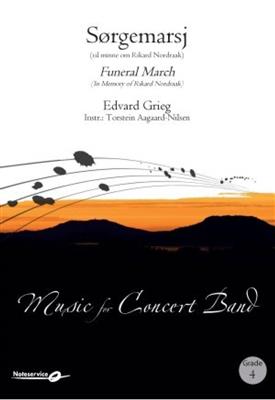 £154.60
£154.60Srgemarsj (til minne om Rikard Nordraak) - Edvard Grieg
Edvard Grieg composed this funeral march in memory of Rikard Nordraak who died i Berlin in 1866. The work present both pompous and magnificent thems as well as melancholic melodies.The solemn funeral march is a typical national romantic work.This instrumentation was written in 2018 in conjunction with the 175th Anniversary of Edvard Grieg's birth.
Estimated dispatch 7-14 working days

